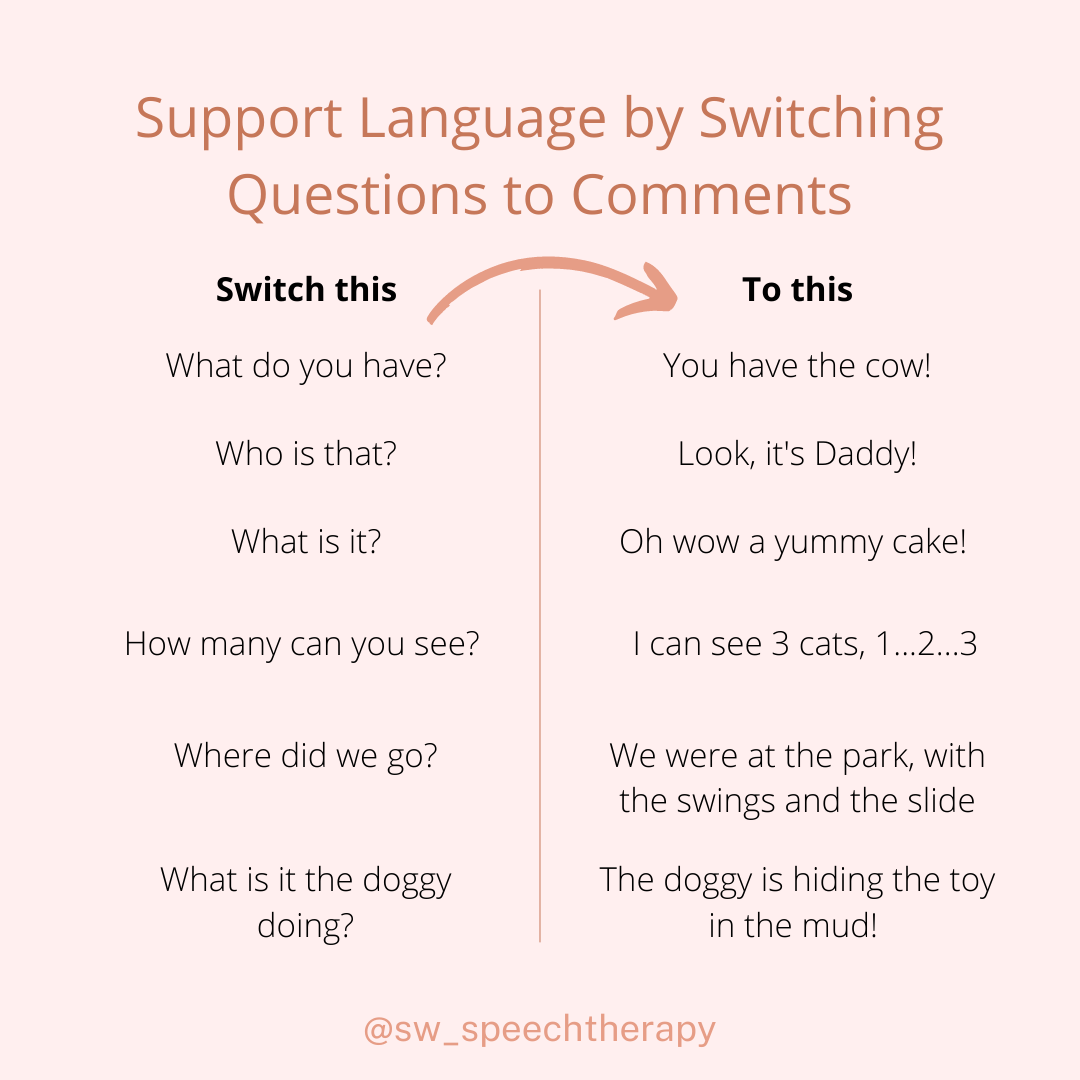What to do while you wait for speech therapy: the ultimate parent guide
It’s no secret that early intervention is the most effective way to support children’s speech and language development.
But what should that ‘intervention’ look like and what do you do as a parent while you wait for your child’s speech therapy appointment?
Let’s dive into this guide to help you, help your pre-schooler develop their communication skills.
Referrals – get them in, and don’t wait about!
If you’re not on the list you’re not coming in!
This is absolutely the case for speech and language therapy. There is always a wait for an appointment, but in the wake of covid these wait times have got a little longer.
So get the referral in sooner rather than later, if by the time your little one is at the top of the waitlist, they no longer need support then amazing!
But get that referral in as soon as you can. For information on how to do that, check out my instagram guide here.
Day to day strategies
Undoubtably you will have seen many of these strategies all over the internet. I talk about them myself over on my Instagram page (@sw_speechtherapy if you’re interested!) The reason they are repeated everywhere is because they work!
Swap questions for comments.
Children learn language through repeating what they hear.
Asking questions is great if you want your little one to be an interviewer! If you want them to learn new words we need to teach them by modelling.
Play
Quality over quantity all the way!
We can build a connection with children through joining in with the things they find interesting.
Set aside 10 minutes 3-5 times a week of distraction free playtime. This means, iPad away, TV off and no one coming in and bothering you! This is time dedicated solely to your pre-schooler.
Repetition
When talking is tricky, this one is super important. Children need to be exposed to a word many, many times to embed it in their vocabulary.
So, with that in mind, it is helpful to use the same language when carrying out the same action. For example, when you are getting your little one dressed you could say “t-shirt on…arms in” etc. every time. By being consistent in this way, not only are you increasing the likelihood that your little one will understand what is coming next, but you are providing them the opportunity to embed those words into their own vocabulary.
Parent training
Parent workshops are there for you if you have a little one in the early years, and you want more than just the day-to-day strategies.
The benefit of parent training courses is that they guide you through the process of supporting your little one. They aren’t specific to your child in the way that direct therapy is, but are a helpful bridge for parents who are waiting for their appointment.
I personally love a weekly course when I am learning something new, because I like a structured approach where I can add steps week by week. So if you’re anything like me then a speech and language course may be a good option for you! You can check out the course I designed to meet this need here.
The final, somewhat unexpected benefit of a parent course is the sense of community. They say it takes a village – which is true, but if your village is full of children talking and finding communication easy it can lead to you feeling like an outsider!
This is where a parent training course can help. Other parents in the same position as you who are never going to judge (because let’s face it, they totally get it) sharing strategies, the wins and the flops together.
Private therapy
So this is not an option that feels right for everyone.
If I am completely honest, I used to be a bit judgemental about the whole private healthcare thing a few years ago! Now I work full time as a private therapist, and I have never looked back. But how do you know if this option is right for you? I would ask yourself the following questions…
How worried are you about your child’s communication skills?
What impact are their communication difficulties having on their and your day-to-day life (how is it at nursery, how are daily activities?)
Have you tried some of the daily strategies? Have they made a difference?
How confident do you feel in supporting your little one?
Are their communication difficulties impacting their behaviour and/or emotions?
How long is the wait for a NHS appointment?
How confident are their nursery/ childcare setting in supporting them?
Hopefully reflecting on those answers will give you a steer as to whether private speech therapy is something you want to look into. If it is, you may be wondering where to look.
My top recommendation is on ASLTIP – it is a directory of independent speech and language therapists. You can search by location and specialism. Many therapists are quite busy at the moment so I recommend contacting a few to see who has space, and to ensure the fit feels right. Speech therapy should be a partnership between parent and therapist, so if it doesn’t feel like that then think carefully about whether that is the right person for you.
Want more tips & tricks from me? Head over to my Instagram @sw_speechtherapy







